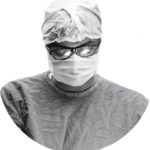

TRAUMA BUNDLE
Learn More-Save Lives
World Trauma Day 2022
By caringsurgeon | Published | No Comments
World Trauma Day, 17th October 2022
Why Trauma Day?
World Trauma Day is celebrated every year on the 17th of October. Due to the increasing rate of accidents and injuries causing death and disability across the world and in India, prevention strategies need to adopt. Trauma means “any injury caused to the body”. The injury may be caused due to many reasons like road accidents, fires, burns, falls, acts of violence and crimes against the vulnerable population including women, children and the elderly.
Trauma Burden
Amongst all the causes, Road Traffic Injuries (RTI) are the leading cause of trauma across the world. Many injuries may lead to temporary or permanent disability while others may even cause death. Every year, about 5 million people die from injuries across the world. In India alone, it is estimated that one million people die and 20 million are hospitalized every year due to injuries. According to National Crime Records Bureau (NCRB), about 1,37,000 people died in road accidents in India in 2013. The burden of disease due to trauma is increasing at an alarming rate. This not only increases the morbidity and mortality rate but also affects national productivity on account of the younger population being mainly involved in road accidents.
Patterns and incidence of accidents
India is the leading country with an increasing population along with the highest fatality across the globe. Indians are adapted to deaths occurred due to road accidents. According to data available from 2016, 32 deaths per 100 crashes.

Due to covid-19 accidents-related deaths were reduced in 2020, the lowest in the last decade. But again boost up in 2021. According to the National Crime Records Bureau (NCRB), more than 4 lakhs people died in road accidents.

Factors causing high deaths in India
As we know, India is sharing the highest number of deaths due to trauma or accidents – which can be preventable by appropriate care and treatment. Accidents-related deaths are multifactorial.

- Rash Driving – is the most common cause of accidents among bike riders.
- Poor road design – unplanned turns, signals, speed breakers, and ditches.
- Poor traffic rules – violation of traffic rules is very common in India.
- Drink & Drive is the most common cause of accidents across India associated with high deaths.
- Non-helping behaviour – In India 10%, respond to help, but only 5% actually help to reach the hospital.
- Poor medical knowledge- In India, even literate people (post-graduated) don’t under CPR few even ever heard about CPR. Where Developed countries every citizen understands CPR. More than 50% can perform CPR to save a victim and actually help a person to stop bleeding.
- Poor ambulance facilities and delayed response time – In America response average ambulance response time is 5-7 min, and in the UK goes the same. In India, it is 30-45 on average it goes as high as 2-3 hours if they come. Finding a private ambulance at the roadside is very difficult due to reachability or unknown location or contacts.
Do’s & Don’t
Do’s
- Follow the road safety rules carefully.
- Pay close attention to the warning signs and traffic signals while driving.
- Always wear a helmet while riding a two-wheeler.
- Avoid distractions like mobile phones, loud music and a person
- Take short breaks in case of long, continuous driving.
- Always keep a first aid safety kit in your vehicle.
- Learn basic life support techniques and help the injured.
Don’t
- Do not drive vehicles in high speed.
- Do not drive when you are tired, sleepy or drunk.
- Do not take any risks while driving, in case you are in a hurry.
- In case of a head or spinal injury, do not move the person from the site of accident without any professional’s help. Moving the injured person may cause serious back or neck injuries.
- Do not give oral feed(water or juice) to any unconscious or semi-conscious person.
- https://www.nhp.gov.in/World-Trauma-Day_pg




